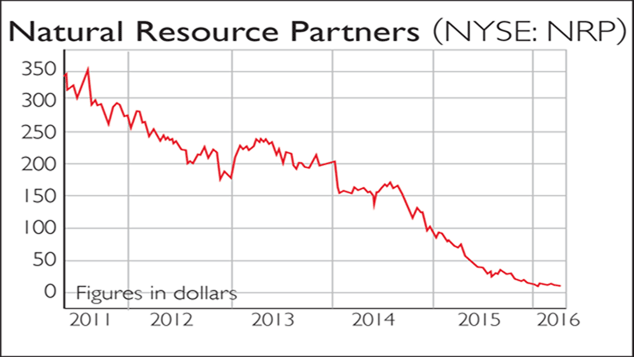
Usually in this column we like to track down high-risk stocks that we believe might just surprise the market on the upside, and so deliver outsize returns to brave investors. But this week we want to warn you away from a sector that we know might look tempting to contrarians, but is more than likely a “value trap”.
Royalty trusts – companies that own the right to a mine or oil well’s production, without being involved in the mechanics of getting it out of the ground – became popular in the 1950s as a corporate-tax strategy. Hiving off a royalty over a company’s largest coal or oil fields was a good way to syphon off profit into a tax efficient vehicle.
Today, the sector looks enticing, with high yields on offer. But beware: returns tend to exaggerate the commodity cycle. BP Prudhoe Bay Royalty Trust, for example, collects royalties from BP’s oil fields in Alaska. Its shares have fallen by 90% since 2011, exaggerating the drop in oil and gas. And of all the commodities that have suffered in the crash, few have done as badly as coal. That’s left coal focused royalty trusts looking very cheap indeed.
For example, Houston-based Natural Resource Partners LP (NYSE: NRP) is trading on an estimated price/earnings ratio of just 1.5 and a dividend yield of 31%, according to Bloomberg. Sounds tempting. But we’d avoid it. NRP has royalties over 2.3 billion tonnes of coal in Illinois and Appalachia, but as commodity prices have dived, it’s tried to diversify, says Reuben Gregg Brewer in the Motley Fool. Coal made up 94% of its earnings three years ago. A concerted push into oil means that dependence has shrunk to around two-thirds.
Unfortunately, the expansion drive also means debt has “ballooned” from $840m to $1.4bn – just as oil prices joined coal prices in falling off a cliff. Interest payments have more than tripled to $89m a year, eclipsing dividends last year for the first time. Just $13m remains of the corporate credit facility, forcing management to sell off assets in coal and aggregates at the bottom of the market. As Brewer sardonically puts it: “If you are looking for tax losses, this could be a good candidate.”